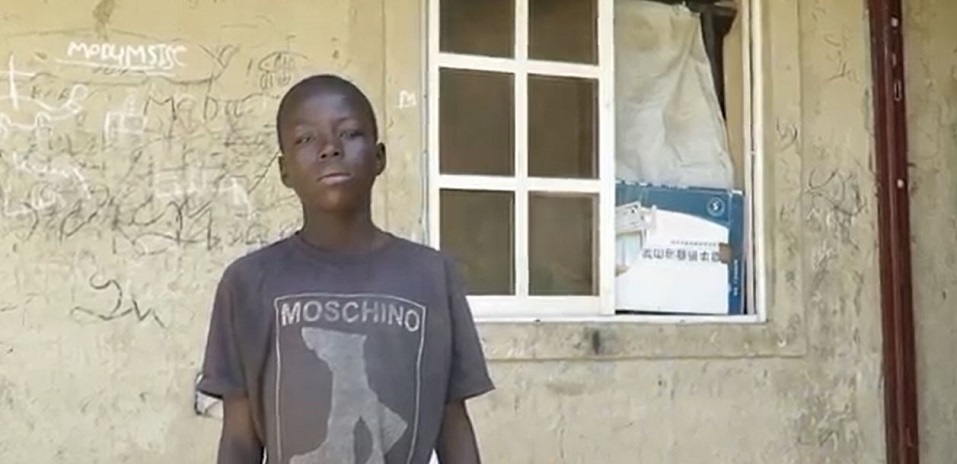Education helps Hadiza and Mustapha look to the future
2017-02-22
© UNICEF/UN041802/Vittozzi
Children receive peer-to-peer education as part of the psychosocial support provided by UNICEF, the Nigerian government and other partners to vulnerable, unaccompanied and separated children impacted by the crisis in northeast Nigeria.
Mustapha loves meeting his friends for a quick game of soccer before class starts in the camp he now calls home. His mother and siblings fled there after Boko Haram militants destroyed their home, killing his grandfather and later his father when he returned to salvage things from their shop.
When Mustapha, who is now 12, arrived in the camp he was having nightmares – a muddled dream mix of his father chasing him and trying to kill him – a clear sign of the trauma he has endured.
School has provided an escape for Mustapha and his young friends who all have experienced horrific violence at the hands of Boko Haram. But the conflict in northeast Nigeria is one of such complexity that traditional responses to the needs of those displaced – particularly children like Mustapha – do not work.

© UNICEF
Mustapha’s mother says if he wants to do anything in this world he needs an education.
Displaced children need more than reading and writing
Since the conflict began in 2009, Boko Haram insurgents have committed horrific acts of violence. Over 2.3 million people have been displaced from their homes with a majority of them being children.
In addition to the conflict’s everyday threats, children are extremely vulnerable to recruitment and use by armed forces and are suffering the most utal effects of violent tactics. This shows just how difficult it is to protect children in this region and help them rehabilitate after they have managed to flee.
Hadiza’s mother is one of many parents trying to protect their children in the face of such violence. One day she was forced to flee with her daughter after Boko Haram attacked their home and killed her husband. After the attack they managed to find their way to Muna Garage – a camp for those displaced by the conflict.
“We had a peaceful life before Boko Haram. One day they turned up and started killing people,” she remembers. “We were in crisis, I didn’t like seeing my daughter out of school.”
Once they arrived in the camp and began to recover from the immediate trauma of their ordeal, Hadiza’s mother went straight to enrol her daughter in school. School has become a grounding force in both their lives and Hadiza is a star pupil.
“I’m so proud when I see her getting into her uniform in the morning,” her mother says, beaming. “At night she sits by my side and does her homework.”
For children like Mustapha and Hadiza getting back to school has meant they can have some semblance of structure and security in their lives. On top of everyday classes, their dedicated teachers use games and craft activities to help them process what has happened and enable them to begin to think about the future. Hadiza dreams of becoming a doctor and leaving the trauma of her experience far behind. For Mustapha his outlook is more philosophical: he believes that education will be the means to ing peace back to Nigeria.

© UNICEF
After Boko Haram attacked their village Hadiza and her mother fled to Muna Garage camp where finally Hadiza has been able to reenrol in school.









